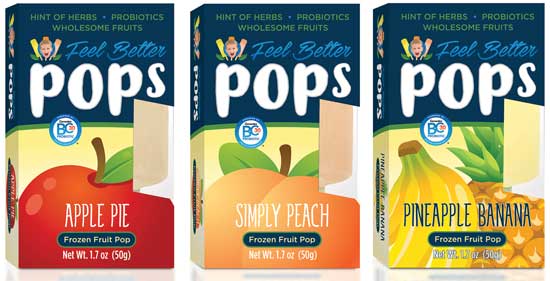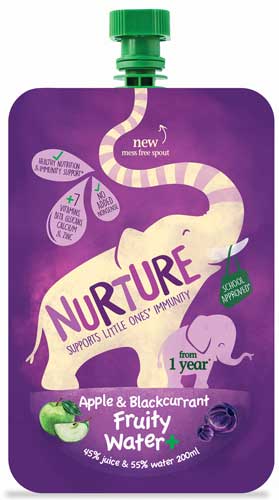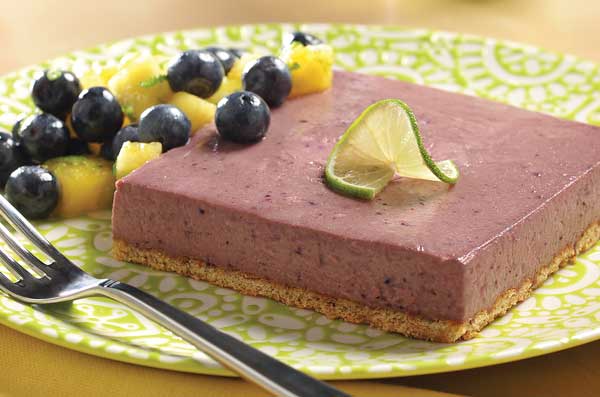Ingredients to Serve and Protect Immune Health
NUTRACEUTICALS
It has been interesting to see the immune health market evolve. Once focused on preventing and shortening the duration of ailments such as the cold and flu, the immune health market has grown into focusing on immunity year-round, for all age groups and lifestyles. Research and ingredients now focus on immune health for people in high-stress situations or careers, and athletes whose bodies can experience suppressed immune systems during and/or after exercising.
“Consumers are smarter, more skeptical, and much more selective than previously seen, which is causing them to pay more attention to their health through what they eat, what they buy, and the actions they take,” observes Donald Cox, Kerry’s director of R&D for Wellmune. “They want to feel confident in the health and wellness decisions they are making, and because of this, we are seeing immune health support as a top priority. The immune health market will continue to grow as consumers look for effective ways to stay healthy that fit within their personalized health and wellness actions.”
In addition, Cox notes that products will need to be customized for consumer lifestyles, interests, and values. “Personalization is reaching all product categories across many different age groups. Clinical research will play a vital role because it will help validate and communicate a functional ingredient’s benefits and ultimately help consumers identify the products that will add value to their health and wellness goals.”
Probiotics
Consumers have increasingly grown knowledgeable about the benefits of probiotics, learning about good versus bad bacteria and the importance of a healthy gut microflora. There is also a better understanding of the relationship between a healthy digestive system and gut microflora and a healthy immune system.
 GanedenBC30 (Bacillus coagulans GBI-30, 6086), for example, has been shown to activate human immune cells and help upregulate the protective cytokines that help fight challenges to the body. Ganeden has more than 25 peer-reviewed published studies supporting its patented probiotic’s health benefits, including immune support. It has FDA GRAS status, is highly stable, and can remain viable through factors that vegetative strains are too fragile to survive, such as processing, shelf life, and the low pH of stomach acid. Because of this, there are more than 750 products globally that are fortified with the strain.
GanedenBC30 (Bacillus coagulans GBI-30, 6086), for example, has been shown to activate human immune cells and help upregulate the protective cytokines that help fight challenges to the body. Ganeden has more than 25 peer-reviewed published studies supporting its patented probiotic’s health benefits, including immune support. It has FDA GRAS status, is highly stable, and can remain viable through factors that vegetative strains are too fragile to survive, such as processing, shelf life, and the low pH of stomach acid. Because of this, there are more than 750 products globally that are fortified with the strain.
Last year, Ganeden launched Staimune, a new ingredient that provides the opportunity to share the immune benefits of GanedenBC30 in product formats that do not support the use of the live probiotic organisms. Staimune utilizes the inactivated cells of GanedenBC30, which when consumed, interact with the body’s immune cells that reside in the lining of the gut. Jensen et al. (2017) showed that Staimune activated human immune cells and altered the production of both immune activating and anti-inflammatory cytokines and chemokines. The study also demonstrated a selective upregulation of the G-CSF growth factor involved in post-injury and post-inflammation repair and regeneration.
DuPont Nutrition & Health has a portfolio of clinically documented probiotics for immune health, including HOWARU Protect EarlyLife for pregnant mothers and infants, HOWARU Protect Kids, HOWARU Protect Sport, HOWARU Protect Senior, and HOWARU Protect Adult.
Most recently, Turner et al. (2017) demonstrated that HOWARU Protect Adult (Bifidobacterium lactis BI-04) may modify the innate immune system response following supplementation and the inflammatory response in the nose following rhinovirus infection. The study’s subjects consumed the probiotic for one month. The researchers investigated the innate immune response and presence of rhinovirus in the nostrils. The virus and the immune markers were analyzed from nasal washes, collected before and after probiotic supplementation and for 5 days after the introduction of the rhinovirus challenge. Compared to the placebo, HOWARU Protect Adult had an effect on the presence of the virus in the nostrils, demonstrated by a decreased amount of rhinovirus in nasal washes during infection and a lower proportion of study subjects with rhinovirus detected in nasal washes.
Research presented by Probi in September 2017 at the International Celiac Disease Symposium showed that its probiotics, Lactobacillus plantarum Heal 9 and Lactobacillus paracasei 8700:2, supported the immune system and potentially delayed the onset of gluten intolerance in children (Probi 2017). For the study, 78 asymptomatic children (aged 3–7) with an increased risk for developing celiac disease were randomly allocated to receive a daily dose of either the probiotic ingredient or a placebo for 6 months while also consuming a gluten-containing diet. The 78 children were identified as a subpopulation in a multinational and multi-year autoimmunity study with thousands of children.
The results showed that the consumption of the probiotic ingredient was associated with suppressing effects on celiac autoimmunity in the children. The levels of the disease-related antibodies were significantly reduced in those subjects who received the probiotic and were significantly increased in those who received the placebo. In addition, several significant differences on a cellular level were observed between each group of subjects, indicating that the probiotic may counteract celiac disease–associated ongoing immunological and inflammatory response.
 Yeast Beta-Glucan
Yeast Beta-Glucan
Wellmune is a proprietary baker’s yeast beta 1,3/1,6 glucan that has been clinically shown to enhance immune function without overstimulating the immune system. When Wellmune is consumed, it is taken up in the body by the Peyer’s patches in the intestines. Immune cells called macrophages (located in the Peyer’s patches) ingest Wellmune and travel to immune organs located throughout the body. Macrophages break down Wellmune into smaller fragments that bind to neutrophils, the most abundant immune cells in the body. Primed by Wellmune, neutrophils move more quickly to recognize and kill foreign challenges.
McFarlin et al. (2017) found that adults at an average fitness level showed improvement in immune health both during and after strenuous exercise when taking Wellmune. For the study, 109 healthy adults of average fitness consumed 250 mg of the yeast beta-glucan or a placebo daily for 10 days before exercise. After the supplementation period, the subjects exercised on a treadmill for 90 minutes in a hot, humid environment, alternating slow and fast seven- and eight-minute jogging intervals. All the subjects observed a seven-day washout period after exercise and before beginning the other arm of the trial.
The results demonstrated that the subjects who consumed Wellmune maintained elevated levels of cytokines during exercise stress and superior recovery capability when compared with the subjects who consumed the placebo. The subjects who consumed Wellmune also had a significantly higher number of monocytes and T-cells circulating in the blood than those who consumed the placebo. The results suggest that subjects’ immune systems were able to avoid common post-exercise suppression when supported by yeast beta-glucan.
“Through previous biomarker research with athletes, it was found that the immune systems of participants taking Wellmune avoided common post-exercise suppression associated with intense exercise,” says Cox. “This new study supports similar results with non-athletes, confirming that Wellmune showed improvement in immune health both during and after strenuous exercise for those of average fitness levels.” The findings from this study are consistent with other published studies that show Wellmune is clinically proven to help improve general immune health, reduce the incidence of upper respiratory tract infection symptoms, and improve the overall sense of well-being in people experiencing physical or lifestyle stress.
Berries
Thanks in part to its flavonoid profile, the black elderberry is increasingly being promoted for its immune health benefits. “Over the years, studies have identified black elderberry’s (Sambucus nigra) prominent immune-boosting and pathogen-fighting abilities through various mechanisms,” says Melanie Bush, chief science officer at Artemis International. “In addition to elderberry being a potent antioxidant, it has been shown to increase and regulate the production of several cytokines (chemical messengers that communicate with other parts of the immune system and influence levels of inflammation in the body) as part of its immunomodulatory activity. This essentially activates or boosts the immune system to be ready for action.”
Bush adds that a 2016 human clinical study was conducted using an Artemis elderberry extract (produced with solvent-free Holistic Membrane Extraction technology). It investigated the effects of the elderberry extract on long-haul international flight passengers who were especially prone to illness. The elderberry extract treatment resulted in a 1/3 shorter duration of the cold occurrences, a reduction in severity of cold symptoms, and three times better overall health. “Now research is even exploring the synergies with the gut microflora as yet another mechanism of action for the observed immune benefits. There is new data to suggest that the health benefits that you would get from combining antioxidant-rich flavonoids (like those from elderberry) and probiotics in a single product will be greater than what could be achieved using each individually,” she says.
 Blueberries, too, may improve immune health. “Phytochemicals found in fruits, such as blueberries, continue to be investigated for their health benefits with regard to immune health, heart health, anti-aging properties, cancer prevention, improved eyesight, and better memory,” says Tom Payne, industry specialist to the U.S. Highbush Blueberry Council. “Blueberries are often cited for their possible benefits to the immune system. For example, in a 2013 Oregon State University analysis of 446 compounds for their ability to boost the innate immune system in humans, researchers discovered just two that stood out from the crowd—the resveratrol found in red grapes and a compound called pterostilbene from blueberries.” Guo et al. (2014) showed that these two compounds may have the potential to boost the innate immune response by increasing cathelicidin antimicrobial peptide gene expression, particularly in combination with vitamin D.
Blueberries, too, may improve immune health. “Phytochemicals found in fruits, such as blueberries, continue to be investigated for their health benefits with regard to immune health, heart health, anti-aging properties, cancer prevention, improved eyesight, and better memory,” says Tom Payne, industry specialist to the U.S. Highbush Blueberry Council. “Blueberries are often cited for their possible benefits to the immune system. For example, in a 2013 Oregon State University analysis of 446 compounds for their ability to boost the innate immune system in humans, researchers discovered just two that stood out from the crowd—the resveratrol found in red grapes and a compound called pterostilbene from blueberries.” Guo et al. (2014) showed that these two compounds may have the potential to boost the innate immune response by increasing cathelicidin antimicrobial peptide gene expression, particularly in combination with vitamin D.
Botanicals
Echinacea is one of the more common botanicals associated with immune health. “There are many popular botanicals used for immune health that we offer, such as aronia, ashwagandha, cat’s claw, garlic, ginger, maca, spirulina, and turmeric,” says Margaret Gomes, director of marketing at NP Nutra. “While some ingredients enhance immune system function, like goldenberry, reishi, and ashwagandha, others contain specific nutrients such as phytonutrients (cat’s claw), antioxidants (aronia, ginger, spirulina,) and other beneficial compounds (garlic, maca, turmeric) that work synergistically to promote immune health.”
Last year, NP Nutra launched a goldenberry powder. The ingredient is a low-calorie nutrient-dense powder with high levels of carotenoids used to boost immunity and maintain healthy weight, blood pressure, and sugar levels. “Research studies show that goldenberry is rich in antioxidants and chemical compounds called withanolides, first identified in the ayurvedic herb ashwagandha,” explains Gomes. “These compounds are known to enhance health by acting as immune system modulators, helping the immune system to function correctly.”
Next month’s Nutraceuticals column will highlight ingredients that may have benefits to one’s appearance.
 Linda Milo Ohr,
Linda Milo Ohr,
Contributing Editor
Denver, Colo.
[email protected]
References
Guo, C., B. Sinnott, B. Niu, M. B. Lowry, M. L. Fantacone, and A. F. Gombart. 2014. “Synergistic Induction of Human Cathelicidin Antimicrobial Peptide Gene Expression by Vitamin D and Stilbenoids.” Molecular Nutr. Food Res. 58(3): 528–536.
Jensen, G. S., H. A. Cash, S. Farmer, and D. Keller. 2017. “Inactivated Probiotic Bacillus coagulans GBI-30 Induces Complex Immune Activating, Anti-inflammatory, and Regenerative Markers in vitro,” J. Inflammation Res. 10: 107–117.
McFarlin, B. K., A. S. Venable, K. C. Carpenter, A. L. Henning, and S. Ogenstad. 2017. “Oral Supplementation with Baker’s Yeast Beta Glucan Is Associated with Altered Monocytes, T Cells and Cytokines Following a Bout of Strenuous Exercise.” Front. Physiol. 8: 786. doi: 10.3389/fphys.2017.00786.
Probi. 2017. “New Clinical Study Shows that Probi’s Probiotics Support the Immune System and May Delay the Onset of Gluten Intolerance in Children.” Press release, Sept. 11. Probi, Lund, Sweden. probi.com.
Turner, R. B., J. A. Woodfolk, L. Borish, et al. 2017. “Effect of Probiotic on Innate Inflammatory Response and Viral Shedding in Experimental Rhinovirus Infection—A Randomized Controlled Trial.” Beneficial Microbes. 8(2): 207–215.


